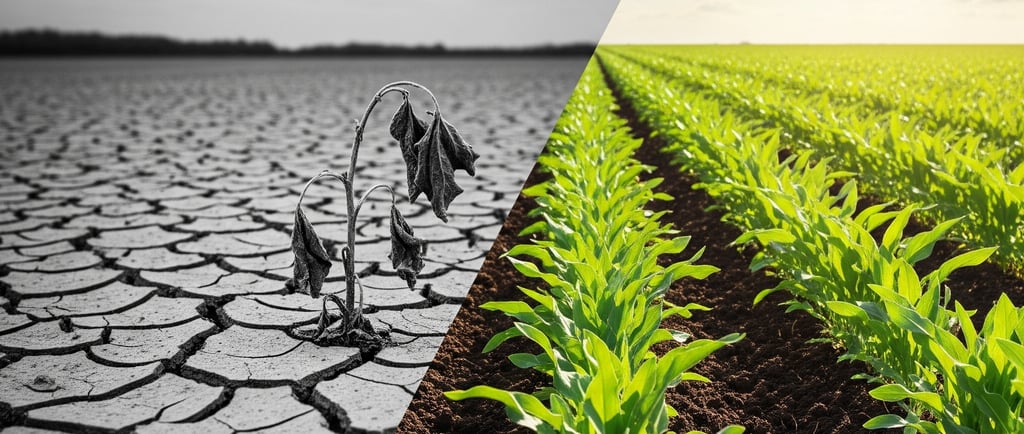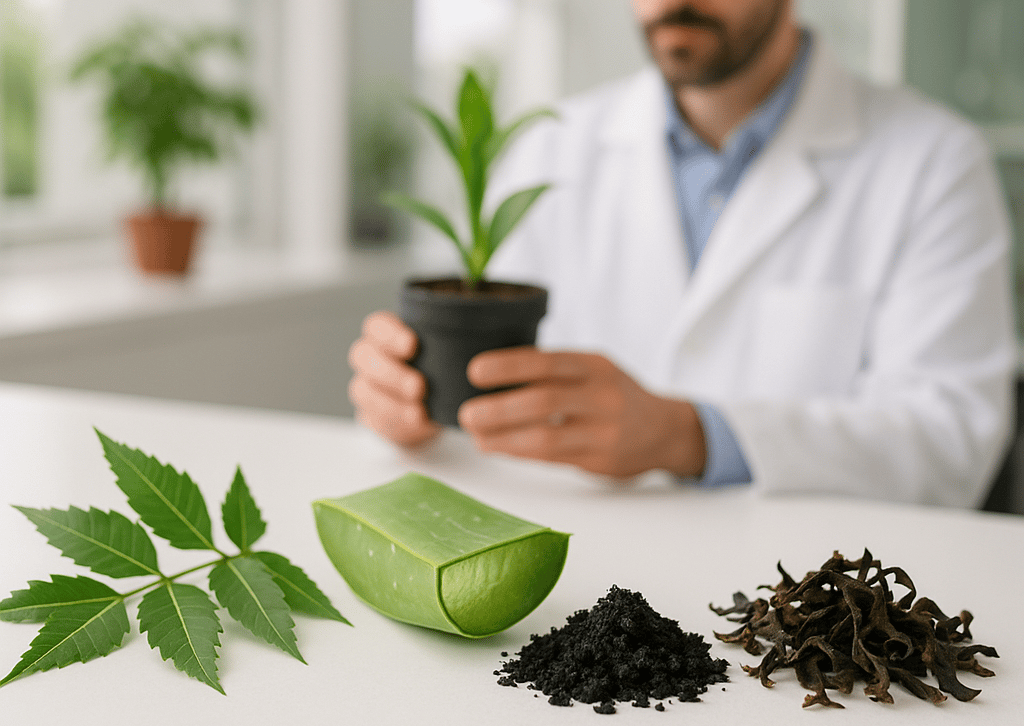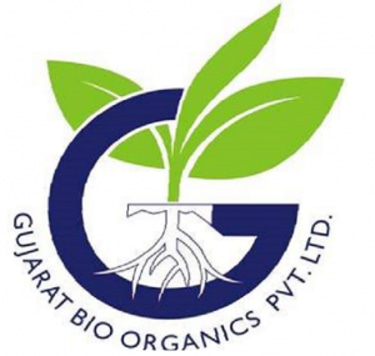The Great Fertilizer Fallacy: Rethinking Sustainable Farming Practices
"Chemical vs. Organic: The Great Debate. But looking at this image, is the real question which one to choose, or how we can safely build a bridge from the left to the right? What are your thoughts on a balanced approach?"
FERTILIZERPLANT NUTRITIONSUSTAINABILITY


The Great Fertilizer Fallacy: Why the Future of Farming is Neither Black nor White, but Green
The world's soils are the foundation of our food system, yet they are in peril. The Food and Agriculture Organization of the United Nations (FAO) warns that a staggering 33% of the Earth's soils are already degraded, with current farming practices threatening to worsen the crisis. For decades, farmers have been pushed towards a stark choice: fast chemicals or slow organics. But what if the most significant threat is the lack of a better choice?
This article exposes the critical gaps in our current practices and reveals a proven, hybrid path forward—a way to heal our soil, secure our economy, and truly nourish our future.
Part 1: The Chemical Conundrum
Chemical fertilizers (NPK) were a short-term solution that created a long-term problem. Their overuse has led to a devastating cycle of dependency. As the FAO notes in its "Status of the World's Soil Resources" report, nutrient imbalance and the excessive use of nitrogen fertilizers are key drivers of soil degradation and water pollution globally. This pollution not only creates "dead zones" in our waterways but also releases nitrous oxide (N_2O), a greenhouse gas that heavily contributes to climate change.
[IMAGE: A close-up shot of chemical fertilizer pellets being poured onto dry, lifeless-looking soil. In the background, slightly out of focus, show a polluted stream with a greenish tint, suggesting agricultural runoff.]
Part 2 & 3: The Ideal, The Gap, and The Reality
The shift to pure organic farming, while well-intentioned, often fails because chemically-addicted soil cannot process natural matter effectively, leading to crop failure.
Furthermore, there is a profound "Nutrient Gap." Most farming practices stop at NPK, ignoring vital secondary and micronutrients. Even when farmers use micronutrients like Zinc or Iron, they often apply them in forms like sulphates or carbonates, which get locked in the soil and remain unavailable to the plant. It's an inefficient, wasteful, and ultimately failing strategy.
[IMAGE: An infographic diagram. On the left, a large funnel labeled "Farmer's Investment" is full of coins. The funnel leads to the soil. Below the soil, a very small arrow labeled "Nutrient Uptake" points to a plant's roots, while a large arrow labeled "Locked & Wasted Nutrients" points away.]
Part 4: The Solution - An Intelligent, Specialized Hybrid Model
A true solution must be both scientifically sound and practically viable. This is where the pioneering work of Gujarat Bio Organics Private Limited, an established Organic Nutrition Specialist for Crops, provides a revolutionary path. With over two decades of experience, an in-house R&D lab, and state-of-the-art manufacturing facilities, they have moved beyond the simplistic debate to engineer a model that truly works for the farmer.
This model involves a strategic reduction of chemicals while empowering the farm's ecosystem with high-quality, bio-available nutrition derived from Rare Indian Herbs, Neem, Aloe Vera, Humic Acids, Seaweed, and Amino Acids.
Crucially, with a portfolio of more than 50 crop-specific products like Immunity Apple Special, Immunity Sugarcane Special, Immunity Potato Special, and Immunity Paddy Special, they provide tailored nutrition. This specialist approach, backed by strict quality controls, directly counters the threat of low-grade counterfeit products and ensures every nutrient is in a form the plant can actually use. This is why many consider them the best organic fertilizer manufacturer in Gujarat.
[IMAGE: A vibrant, clean shot showing the raw ingredients: pieces of neem leaf, a cut aloe vera spear, dark humic flakes, and dried seaweed laid out on a clean surface. In the background, a scientist in a lab coat can be seen looking at a plant.]
Economics & Environment: The True Winner
The economic toll of the old way is staggering. The UN has stated that soil degradation could reduce global food production by up to 12%, leading to a 30% increase in world food prices. For a nation like India, where agriculture is a cornerstone of the economy, continuing down this path means risking our economic stability and food security.
The hybrid model reverses this. By restoring soil health, farmers drastically cut down on input costs. Resilient soil produces stable, high-quality yields, boosting profitability. Farmers looking for crop-specific organic fertilizer India are finding this is the key to long-term financial success. This is the future, championed by what many consider the top bio-fertilizer company in India.
Conclusion: Choose the Specialist Path
The choice is clear. We can continue down a path of diminishing returns and environmental decay, or we can adopt an intelligent, integrated system. By partnering with an Organic Nutrition Specialist who understands the science of bio-availability, we can build farms and a future that are profitable, resilient, and truly sustainable.
Further Reading & References:


